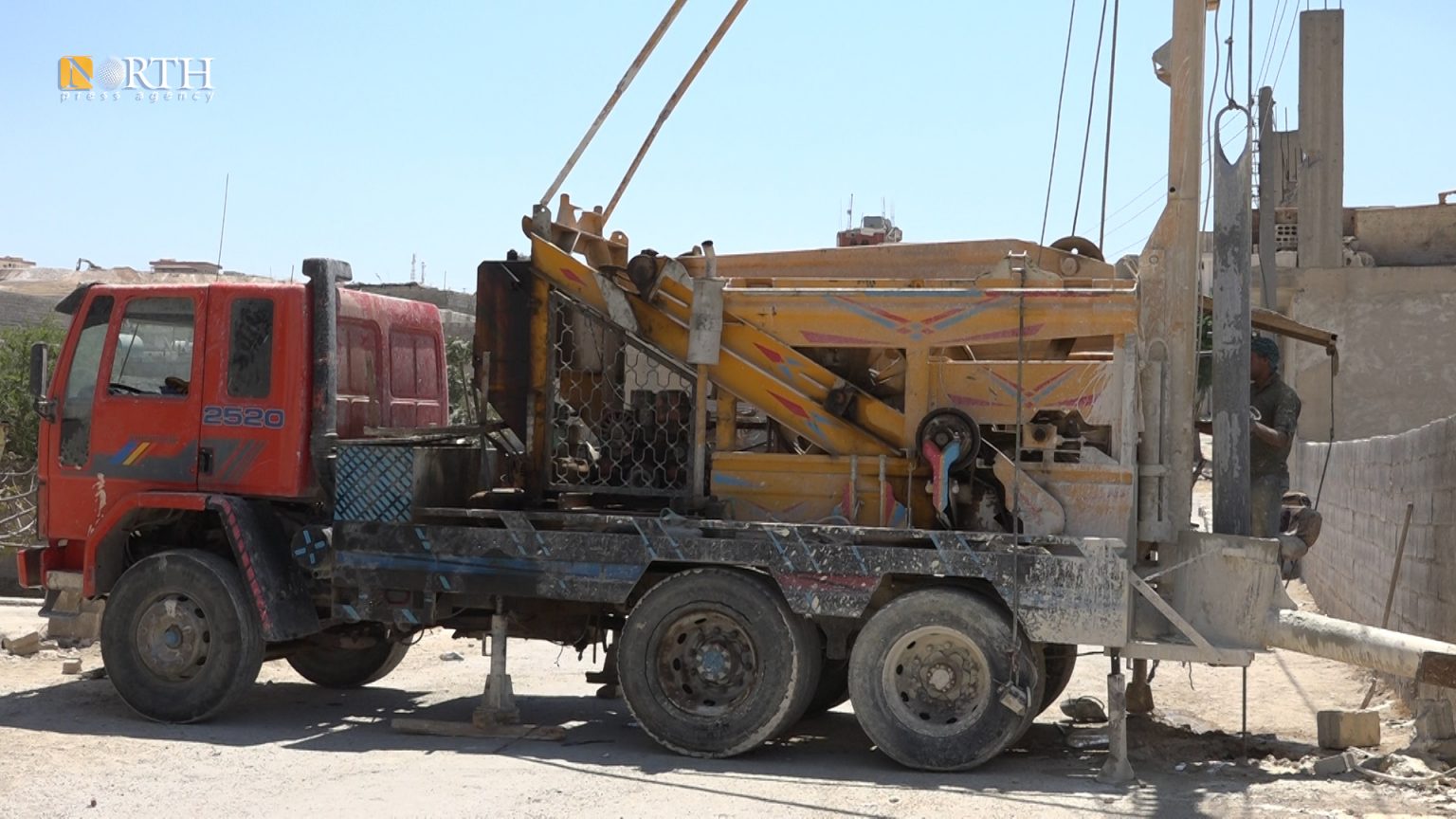Recently, residents of the city of Kobani, north Syria, have resorted to digging artesian wells amid fears of an exacerbation of water shortages in light of the continuation of the seizure of the Euphrates water by Turkey.
Kobani resident Abdo Ibrahim said that he is digging a well for drinking water after the level of the Euphrates River water decreased, resulting in the shortage of water arriving to homes.
“The low level of the Euphrates water caused water contamination and diseases,” he added.
“Drilling wells is a precaution in case the Euphrates water is cut off by Turkey,” Ibrahim added.
For more than four months, the sectors of electricity, drinking water, and irrigation in Kobani have been affected by Turkey’s reducing the flow of the Euphrates to Syria.
Although the residents of Kobani and its countryside were famous for drilling wells, many of the old ones went out of service during the battles against the militants of ISIS in 2015.
Residents receive tap water once every two days, or sometimes every three days. This amount does not meet their needs especially in summer, so they are forced to buy water from tanker trucks.
“Not all residents bear the costs of drilling wells, and the quantities of water varies from one well to another; there are wells that do not pump more than five barrels a day,” Ibrahim pointed out.
Moreover, the required depth of the well varies from one place to another inside the city; the well is dug at a depth ranging between 50 and 150 meters.
“Digging wells has increased in Kobani for two months due to the low level of the Euphrates River,” said Mustafa Ahmad, water drilling machine owner.
“The water used to flow at a depth of 35 meters, whereas now, it flows at a depth of 70 to 75 meters and in some areas at depths of 100 to 120 meters,” he added. “We dig one meter at 4,000 SYP.”
“The digging of each well costs between 450,000 and 500,000 SYP including the costs of the license and the fuel,” he pointed out.
“The license costs 35,000 SYP,” he indicated. “We need two days at least to dig a well.”
Khalisa Haj Abdulqadir, co-chair of the Water Directorate in Kobani, said that Turkey has decreased the level of water flowing to the region, which led to water shortage problems.
“That is why the residents started digging wells in most of the city’s streets despite it affecting the infrastructure,” she added.
However, “some neighborhoods, such as the Martyr Kawa neighborhood, needs wells as it is located on a hill that does not receive drinking water,” she explained.
“We, as the Water Directorate, started implementing a project which will end soon to solve the problem of drinking water shortage in the city,” she pointed out.

